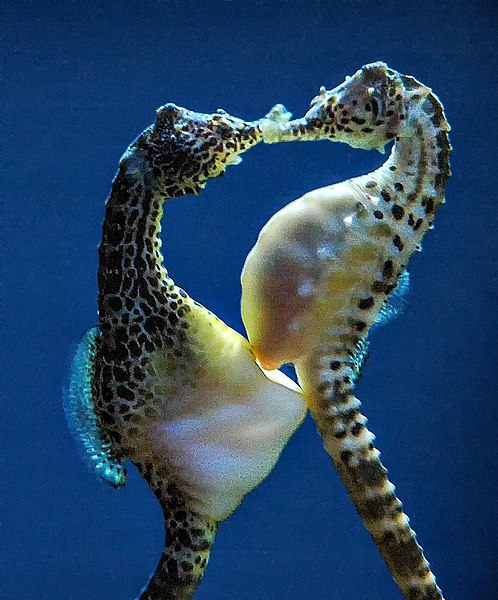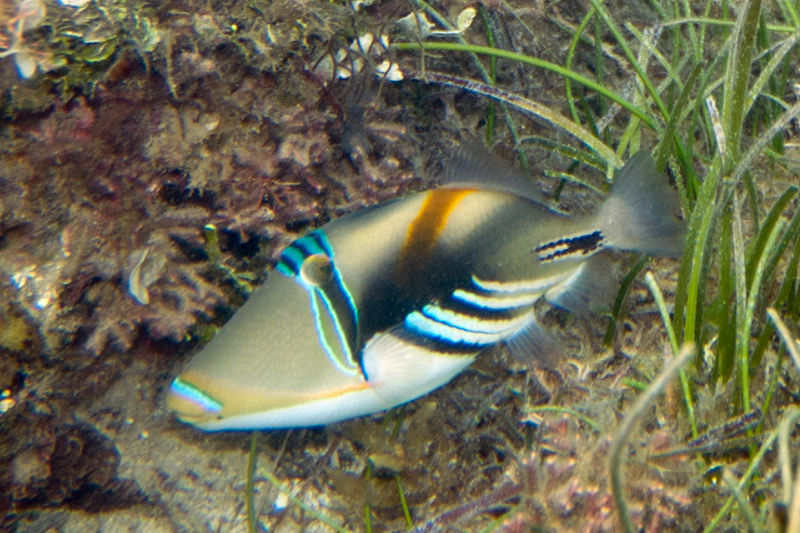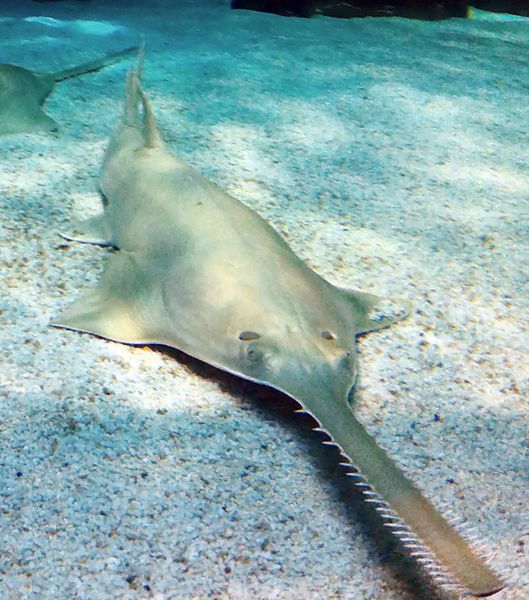Everyone knows that public aquariums are fun, but did you know that many of them also play important roles in conservation and research? OGL partners with public aquariums around the country to help discover and preserve the genomic diversity of the ocean.
Since August 2019, OGL has been working with Jessica Newell and the Downtown Aquarium located in Denver, Colorado. With Newell’s help, OGL has added many new and fascinating species to its collection, including the Potbelly seahorse (Hippocampus abdominalis), Picasso triggerfish (Rhinecanthus aculeatus), and Blacktip reef shark (Carcharhinus melanopterus). We recently had the opportunity to interview Newell and learn more about the Downtown Aquarium, and her role as the Assistant Curator of Fishes, Inverts, and Herps.


Left: Potbelly seahorses (Hippocampus abdominalis), photo credit Elizabeth Haslam; right: Picasso triggerfish (Rhinecanthus aculeatus), photo credit Paul Asman and Jill Lenoble.
As Assistant Curator, Newell supervises the Aquarium’s team of ten biologists and manages the daily check-ins and care of the animals. The Aquarium provides a home for animals that are endangered or critically endangered, including green sawfish—one of Newell’s personal favorite species—painted terrapin turtles, and zebra sharks. Aquariums play a role in these species’ survival. According to Newell, “Many animals near the brink of extinction have had population numbers come back as direct results of conservation programs and commitments from the animal care field.”
In addition to creating a safe habitat for animals, Newell explains how aquariums play a key role in conservation education and environmental outreach. “Aquariums provide safe places for people to learn about and gain appreciation for animals they’d never have the chance to encounter,” she says. “Additionally, zoos and aquariums collectively donated millions [of dollars] and time for research and conservation efforts globally…many aquariums provide education on a local and individual scale for people to take away as a message.” These efforts focus on plastic pollution, recycling practices, sunscreen damage to coral reefs, and bioaccumulation within human food.


Left: Green sawfish (Pristis zijsron), photo credit Flavia Brandi; right: Zebra shark (Stegostoma tigrinum), photo credit Ross D. Robertson.
Newell adds, “Collaborating with OGL allows us to be a part of the bigger picture of animal research and conservation efforts. Many animals would not continue to exist in the ‘wild’ without the conservation efforts and educational opportunities zoos and aquariums offer.” The Downtown Aquarium, Denver and OGL are united by the common objective of contributing to environmental preservation and research. By working together, these organizations will not only expand their impact, but also further achieve this goal.
Thank you to Jessica Newell and the Downtown Aquarium, Denver for all of your work with OGL! The next time you are in Denver, Colorado, be sure to stop by the Downtown Aquarium.
Click here to learn more about the Downtown Aquarium, Denver!
Click here to learn more about the Association of Zoos and Aquariums!
Interested in contributing to the preservation of biological material? Support OGL here.
